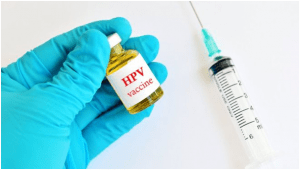Sex is one human interaction that has always had lots of myths attached to it. It almost every new generation has its new myth to tell. Some of them come from misinformed individuals but can create quite a frenzy when they start to circulate around impressionable young adults. One of the many questions that surround the world of sex is whether oral sex can, in fact, increase your risk of cancer.

Now whilst oral sex can put you at risk of some sexually transmitted infections the actual act itself will not cause cancer. However, there are credible links between some strains of HPV which is known as the Human Papilloma Virus and some oral cancers such as those of the throat, mouth, and tongue.
HPV has been the buzzword around sexual health for a number of years now following on from the discovery of the link between this virus and the risk factors for cervical cancers. This then led to research into this area and the creation of the HPV vaccine which is now given to teenage girls. Due to the links also with throat cancers, there are calls by some individuals and cancer groups to have teenage boys also vaccinated against HPV.
HPV is a virus that in almost all cases is transferred by the sexual activity of one kind or another and there are in fact over 100 different types of the virus. Of these, it is thought that at least 15 of the strains can be linked to cancers. It is thought that around 9 out of every 10 people have been infected with HPV at some point by the time that they reach the age of 25. This virus does not always carry symptoms, although some people may experience genital warts. There are a number of STI’s that do carry mild symptoms but the best way to check for these is to use Home STI kits that are available from companies such as https://www.bexleysexualhealth.org/home_sti_kits/. These kits allow for you to either take a swab or small amount of blood in the comfort of your own home and then send back for analysis.

The success of the HPV vaccine and the research behind how the HPV virus can lead to cells in the cervix to change, which may or may not at some point in the future turn into something that could be cancerous has led to a change in the way that cervical smear tests are carried out. Most people will naturally clear the HPV virus in their bodies within two years without the need for any medication and without causing cancer of any kind.
